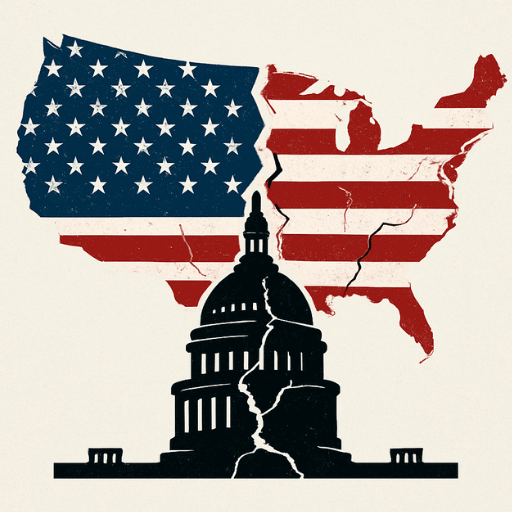Trump’s Oval Office Standoff: A Constitutional Crisis Unfolds
TLDR; In a recent Oval Office meeting, President Trump defied a Supreme Court ruling regarding the deportation of a man deemed a member of MS-13, raising concerns about a constitutional crisis and the implications of his actions alongside El Salvador’s President Bukele.
In a recent press conference, President Trump faced a challenging question regarding the deportation of a man his administration claims was mistakenly sent back to El Salvador. This individual, identified as Kilmar Abrago Garcia, was ruled by two courts to be a member of the gang MS-13 and was deported under controversial circumstances. The implications of this situation have sparked significant debate about the rule of law and the potential for a constitutional crisis.
The Deportation Controversy
The question posed to Trump by a reporter from CB centered on whether he would ask President Nayib Bukele of El Salvador to facilitate Garcia’s return to the United States. Trump responded by emphasizing that Garcia was illegally in the U.S. and had been ruled as a gang member by immigration courts. He stated that any further actions regarding Garcia’s return would be up to El Salvador, asserting that the U.S. would only facilitate the process if requested.
Trump’s comments raised eyebrows, particularly when he questioned how he could possibly smuggle a terrorist back into the U.S. He dismissed the idea of releasing criminals, arguing that it would reverse the progress made in reducing crime in the U.S. and turn the country back into a dangerous environment.
Defiance of the Supreme Court
The situation escalated when it became clear that President Bukele confirmed he would not return Garcia to the U.S., despite a unanimous Supreme Court ruling demanding his return due to a lack of due process. This refusal to comply with the Supreme Court’s decision has led to accusations that Trump’s administration is entering a constitutional crisis. Legal experts argue that when the executive branch openly defies a ruling from the highest court, it undermines the foundation of democracy and the rule of law.
Trump’s actions, standing next to Bukele—who has been described as a self-proclaimed dictator—send a troubling message about his views on governance and authority. Critics argue that this meeting symbolizes a shift towards a more authoritarian style of leadership, where the law is selectively enforced or ignored altogether.
The Mockery of Law
The exchange between Trump and Bukele has been interpreted as a mockery of the legal system. Observers noted that both leaders appeared to be playing a game, suggesting that there was no feasible way to return Garcia to the U.S. This raises questions about the integrity of their statements, especially considering that the U.S. provides significant financial support to El Salvador, including for its prison system.
The implications of this meeting extend beyond the immediate issue of Garcia’s deportation. It reflects a broader trend where leaders may feel emboldened to disregard legal norms and principles, viewing themselves as above the law. This behavior is characteristic of authoritarian regimes, where the rule of law is often subverted for political gain.
The Importance of Due Process
The discussion surrounding Garcia’s deportation highlights a critical aspect of American democracy: the right to due process. Regardless of an individual’s background or allegations against them, the Constitution guarantees that everyone deserves a fair hearing in court. Trump’s administration’s approach raises concerns about the erosion of these rights, particularly for immigrants and marginalized communities.
As the debate continues, it is essential to recognize that the principles of justice and due process are foundational to the American legal system. Ignoring these principles not only jeopardizes individual rights but also threatens the integrity of the entire democratic framework.
Conclusion: A Call to Action
The optics of the Oval Office meeting between Trump and Bukele serve as a stark reminder of the current political climate in the United States. It is crucial for citizens—regardless of their political affiliations—to recognize the implications of these actions. The potential for a constitutional crisis looms large, and it is imperative to advocate for the rule of law and the preservation of democratic values.
As we navigate these turbulent times, it is vital to engage in discussions about the future of democracy in America. The choice between upholding the law and succumbing to authoritarianism is one that every citizen must consider. Now is the time to speak out and ensure that the principles of justice and due process remain at the forefront of our national discourse.





